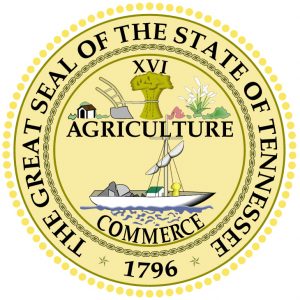 The Tennessee Court of Appeals held that a single member limited liability company (SMLLC) that is disregarded for federal income tax purposes is regarded for Tennessee excise tax purposes unless its single member is classified as a corporation for federal income tax purposes. The court also held that proceeds from the settlement of a legal malpractice claim constitute “business earnings” subject to excise tax where the proceeds represent lost business revenue. EmeraChem Power, LLC v. Gerregano, No. E2019-00292-COA-R3-CV (Tenn. Ct. App. June 1, 2020). Continue Reading ›
The Tennessee Court of Appeals held that a single member limited liability company (SMLLC) that is disregarded for federal income tax purposes is regarded for Tennessee excise tax purposes unless its single member is classified as a corporation for federal income tax purposes. The court also held that proceeds from the settlement of a legal malpractice claim constitute “business earnings” subject to excise tax where the proceeds represent lost business revenue. EmeraChem Power, LLC v. Gerregano, No. E2019-00292-COA-R3-CV (Tenn. Ct. App. June 1, 2020). Continue Reading ›
Articles Posted in States
Washington Judge Rules In Favor of Financial Institutions – B&O Tax Measure Discriminates Against Out-of-State Banks
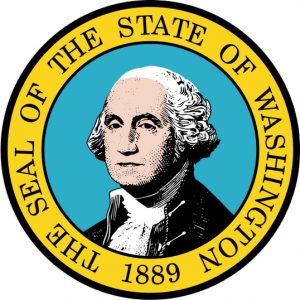 Earlier this month, a Washington state trial judge struck down the state’s recently enacted Business & Occupation Tax (“B&O) measure on large out-of-state financial institutions finding that although the tax measure was facially neutral, the purpose and effect of the tax was discriminatory against out-of-state banks. See Washington Banker’s Ass’n. et ano. v. State of Washington et al., Docket No. 19-2-29262-8 SEA (Wa. Kings County Super. Ct. May 15, 2020). As background, the Washington Bankers Association and American Bankers Association (collectively “Bankers Associations”) filed a challenge to invalidate state House Bill 2167, which seeks to impose a higher B&O tax on out-of-state financial institutions whose annual net income equals to or exceeds $1 billion (the measure would nearly double the B&O tax on out-of-state financial institutions from 1.5% to 2.7%). The Bankers Associations sought to invalidate the law, which became effective January 1, 2020, on the grounds that the measure violates: (1) the state’s constitutional requirement to introduce a bill at least 10 days prior to the adjournment of a legislative session; and (2) the U.S. Constitution’s Commerce Clause because it discriminates against out-of-state financial institutions by imposing a higher tax rate on out-of-state financial institutions versus in-state institutions. On February 13, 2020, the trial court dismissed the Bankers Associations’ state constitutional challenge, finding that the court was prohibited from looking into legislative procedures preceding the enactment of a statute that is “properly signed and appears fair on its face.” However, the judge’s decision preserved the Bankers Associations’ federal constitutional cause of action i.e., the B&O tax measure violates the Commerce Clause because it discriminates against out-of-state financial institutions by creating a differential tax rate for in-state versus out-of-state financial institutions. Upon further briefing, both parties moved for summary judgement and oral argument was held in the matter. Continue Reading ›
Earlier this month, a Washington state trial judge struck down the state’s recently enacted Business & Occupation Tax (“B&O) measure on large out-of-state financial institutions finding that although the tax measure was facially neutral, the purpose and effect of the tax was discriminatory against out-of-state banks. See Washington Banker’s Ass’n. et ano. v. State of Washington et al., Docket No. 19-2-29262-8 SEA (Wa. Kings County Super. Ct. May 15, 2020). As background, the Washington Bankers Association and American Bankers Association (collectively “Bankers Associations”) filed a challenge to invalidate state House Bill 2167, which seeks to impose a higher B&O tax on out-of-state financial institutions whose annual net income equals to or exceeds $1 billion (the measure would nearly double the B&O tax on out-of-state financial institutions from 1.5% to 2.7%). The Bankers Associations sought to invalidate the law, which became effective January 1, 2020, on the grounds that the measure violates: (1) the state’s constitutional requirement to introduce a bill at least 10 days prior to the adjournment of a legislative session; and (2) the U.S. Constitution’s Commerce Clause because it discriminates against out-of-state financial institutions by imposing a higher tax rate on out-of-state financial institutions versus in-state institutions. On February 13, 2020, the trial court dismissed the Bankers Associations’ state constitutional challenge, finding that the court was prohibited from looking into legislative procedures preceding the enactment of a statute that is “properly signed and appears fair on its face.” However, the judge’s decision preserved the Bankers Associations’ federal constitutional cause of action i.e., the B&O tax measure violates the Commerce Clause because it discriminates against out-of-state financial institutions by creating a differential tax rate for in-state versus out-of-state financial institutions. Upon further briefing, both parties moved for summary judgement and oral argument was held in the matter. Continue Reading ›
South Carolina Property Tax Law Discriminates Against Railroads in Violation of 4R Act
The U.S. Court of Appeals for the Fourth Circuit held that a South Carolina law limiting increases in appraised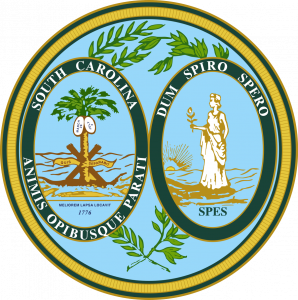 values of most commercial and industrial real properties to 15% within a five-year period violated the 4R Act because it discriminated against railroad properties. CSX Transp., Inc. v. S.C. Dep’t of Revenue, No. 19-1154 (4th Cir. May 20, 2020). Continue Reading ›
values of most commercial and industrial real properties to 15% within a five-year period violated the 4R Act because it discriminated against railroad properties. CSX Transp., Inc. v. S.C. Dep’t of Revenue, No. 19-1154 (4th Cir. May 20, 2020). Continue Reading ›
California Supermajority Tax Challenge Cases are Onto the Next Level: Last Trial Court Ruling Issued
A San Francisco trial court judge has ruled that Proposition G, a parcel tax to fund educational purposes that passed with a 60.76% vote in 2018, is a valid voter initiative that did not require a two-thirds supermajority vote like local special taxes introduced by mayors or local boards of supervisors. The same deciding judge already issued a pair of rulings in favor of San Francisco last July on similar supermajority vote validity-challenging actions concerning San Francisco’s Homelessness Gross Receipts Tax and Early Care and Education Commercial Rents Tax. Both previous rulings are currently under separate appeals in the First District Court of Appeal.
a two-thirds supermajority vote like local special taxes introduced by mayors or local boards of supervisors. The same deciding judge already issued a pair of rulings in favor of San Francisco last July on similar supermajority vote validity-challenging actions concerning San Francisco’s Homelessness Gross Receipts Tax and Early Care and Education Commercial Rents Tax. Both previous rulings are currently under separate appeals in the First District Court of Appeal.
OTA Rules in Precedential Opinion Taxpayer Entitled to Interest Abatement Due to FTB’s Delays in the Protest Process
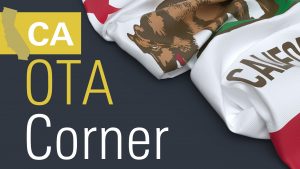
The California Office of Tax Appeals held the Franchise Tax Board abused its discretion in failing to abate interest for a 248-day delay caused by the FTB’s failure to assign a protest hearing officer to the taxpayer’s protest. Taxpayer wins involving interest abatement requests on appeal are fairly uncommon in California and even more uncommon in precedential opinions. This makes exploring a taxpayer’s recent win before the OTA especially worthy.
The FTB has discretionary authority to abate interest related to a proposed deficiency to the extent the interest is attributable in whole or in part to an unreasonable error or delay by an officer or employee of the FTB in performing a ministerial or managerial act. On appeal, the OTA only reviews FTB’s interest abatement determinations for abuse of discretion. This makes a taxpayer’s burden of proof on appeal much greater than the ordinary preponderance of the evidence standard. The taxpayer must show the FTB exercised its discretion “arbitrarily, capriciously, or without sound basis in fact or law.”
COVID-19: Comprehensive Coverage of State Income Tax Relief as of April 13, 2020
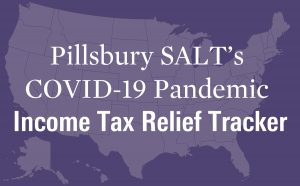 State income tax relief in the form of tax return filing and tax payment extensions, and the deployment of related administrative guidance, has evolved rapidly in the last several weeks in the face of the COVID-19 crisis. Of the 45 jurisdictions, including the District of Columbia, that impose an income tax on corporations, 40 have established income tax relief to corporate taxpayers in the form of tax payment extensions, return filing extensions and/or various penalty and interest relief during the extension period. Arkansas, Minnesota and Montana are playing hardball, affirmatively announcing no income tax relief will be provided to corporate taxpayers. Massachusetts has announced it purportedly does not have the authority to extend income tax filing or payment deadlines to corporations but has provided late-filing and late-payment penalty relief. And unique as always, Florida still appears to be on the fence.
State income tax relief in the form of tax return filing and tax payment extensions, and the deployment of related administrative guidance, has evolved rapidly in the last several weeks in the face of the COVID-19 crisis. Of the 45 jurisdictions, including the District of Columbia, that impose an income tax on corporations, 40 have established income tax relief to corporate taxpayers in the form of tax payment extensions, return filing extensions and/or various penalty and interest relief during the extension period. Arkansas, Minnesota and Montana are playing hardball, affirmatively announcing no income tax relief will be provided to corporate taxpayers. Massachusetts has announced it purportedly does not have the authority to extend income tax filing or payment deadlines to corporations but has provided late-filing and late-payment penalty relief. And unique as always, Florida still appears to be on the fence.
Continue Reading ›
New York FY 2021 Budget Bill Decouples from CARES Act Taxpayer Relief Provisions
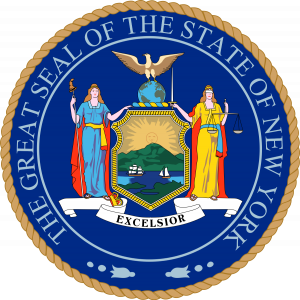 On April 3, 2020, New York State enacted the 2021 fiscal year budget (Budget). The Budget contains several tax measures including decoupling from taxpayer relief provisions of the Coronavirus Aid, Relief, and Economic Security Act (CARES Act). The CARES Act was signed into law on March 27, 2020 with the primary objective to provide economic relief and greater liquidity to American taxpayers facing hardship because of the COVID-19 crisis. Specifically, the Budget decouples from taxpayer favorable provisions in the CARES Act including the increase to the permitted business interest expense deduction and the beneficial NOL provisions. As a result, New York taxpayers will not receive the benefit of the CARES Act relief provisions for New York tax purposes. Continue Reading ›
On April 3, 2020, New York State enacted the 2021 fiscal year budget (Budget). The Budget contains several tax measures including decoupling from taxpayer relief provisions of the Coronavirus Aid, Relief, and Economic Security Act (CARES Act). The CARES Act was signed into law on March 27, 2020 with the primary objective to provide economic relief and greater liquidity to American taxpayers facing hardship because of the COVID-19 crisis. Specifically, the Budget decouples from taxpayer favorable provisions in the CARES Act including the increase to the permitted business interest expense deduction and the beneficial NOL provisions. As a result, New York taxpayers will not receive the benefit of the CARES Act relief provisions for New York tax purposes. Continue Reading ›
Oregon Tax Court Applies Wayfair Retroactively in Telecommunications Tax Case
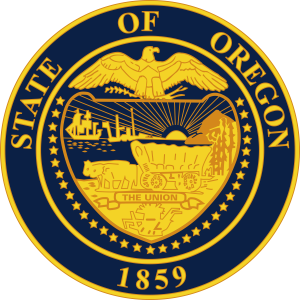 The Regular Division of the Oregon Tax Court just handed down a nexus decision with respect to the collection of an emergency telecommunications tax (E911 Tax). In Ooma, Inc. v. Department of Revenue, TC 5331 Tax Court, 03/02/2020, the Court concluded that notwithstanding the absence of physical presence in Oregon, a company which provided VOIP services to Oregon customers, was required to collect the E911 Tax. Continue Reading ›
The Regular Division of the Oregon Tax Court just handed down a nexus decision with respect to the collection of an emergency telecommunications tax (E911 Tax). In Ooma, Inc. v. Department of Revenue, TC 5331 Tax Court, 03/02/2020, the Court concluded that notwithstanding the absence of physical presence in Oregon, a company which provided VOIP services to Oregon customers, was required to collect the E911 Tax. Continue Reading ›
COVID-19: Comprehensive Coverage of State Income Tax Relief as of March 29, 2020
 Forty-four states plus the District of Columbia impose an income tax on corporations. In response to the COVID-19 pandemic, 36 of those 45 jurisdictions have established income tax relief to corporate taxpayers in the form of tax payment extensions. Of those 36, most also extended the return filing deadline and have waived all penalties and interest during the extension period. Four states are playing hardball, affirmatively announcing no income tax relief will be provided to corporate taxpayers: Arkansas, Minnesota, Montana and New Hampshire. Three states seem to be keeping their heads in the sand, having made no announcement at all regarding tax relief to corporate taxpayers: Alaska, Massachusetts, and Pennsylvania. And two states appear to be on the fence: Florida and New Jersey.
Forty-four states plus the District of Columbia impose an income tax on corporations. In response to the COVID-19 pandemic, 36 of those 45 jurisdictions have established income tax relief to corporate taxpayers in the form of tax payment extensions. Of those 36, most also extended the return filing deadline and have waived all penalties and interest during the extension period. Four states are playing hardball, affirmatively announcing no income tax relief will be provided to corporate taxpayers: Arkansas, Minnesota, Montana and New Hampshire. Three states seem to be keeping their heads in the sand, having made no announcement at all regarding tax relief to corporate taxpayers: Alaska, Massachusetts, and Pennsylvania. And two states appear to be on the fence: Florida and New Jersey.
See our latest matrix for comprehensive coverage (updated April 14), on state income tax relief to corporations, other business entities, and individuals. Our coverage is organized in a manner that is quick to digest, and links to primary source authority are provided for ease of reference and to track future developments. Pillsbury SALT will continue to track these tax relief developments in the rapidly evolving landscape of the COVID-19 pandemic.
No Sales or Use Tax Due on Materials and Equipment Used to Construct and Install Steam Facility at Tennessee Manufacturing Plant
In a letter ruling published March 16, 2020, the Tennessee Department of Revenue concluded that a contractor’s purchase of materials and equipment for use in the construction and installation of a new steam production facility at a federally owned manufacturing plant was exempt from Tennessee sales and use tax. Tenn. Letter Rul. No. 20-02 (issued Feb. 10, 2020).
 SeeSALT Blog
SeeSALT Blog

